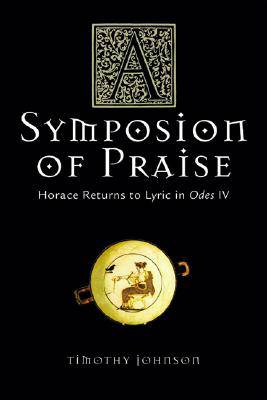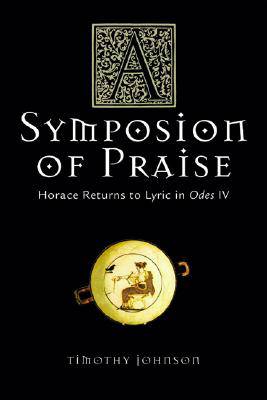
- Retrait gratuit dans votre magasin Club
- 7.000.000 titres dans notre catalogue
- Payer en toute sécurité
- Toujours un magasin près de chez vous
- Retrait gratuit dans votre magasin Club
- 7.000.0000 titres dans notre catalogue
- Payer en toute sécurité
- Toujours un magasin près de chez vous
Description
Ten years after publishing his first collection of lyric poetry, Odes I-III, Horace (65 B.C.-8 B.C.) returned to lyric and published another book of fifteen odes, Odes IV. These later lyrics, which praise Augustus, the imperial family, and other political insiders, have often been treated more as propaganda than art. But in A Symposion of Praise, Timothy Johnson examines the richly textured ambiguities of Odes IV that engage the audience in the communal or "sympotic" formulation of Horace's praise. Surpassing propaganda, Odes IV reflects the finely nuanced and imaginative poetry of Callimachus rather than the traditions of Aristotelian and Ciceronian rhetoric, which advise that praise should present commonly admitted virtues and vices. In this way, Johnson demonstrates that Horace's application of competing perspectives establishes him as Pindar's rival.
Johnson shows the Horatian panegyrist is more than a dependent poet representing only the desires of his patrons. The poet forges the panegyric agenda, setting out the character of the praise (its mode, lyric, and content both positive and negative), and calls together a community to join in the creation and adaptation of Roman identities and civic ideologies. With this insightful reading, A Symposion of Praise will be of interest to historians of the Augustan period and its literature, and to scholars interested in the dynamics between personal expression and political power.
Spécifications
Parties prenantes
- Auteur(s) :
- Editeur:
Contenu
- Nombre de pages :
- 344
- Langue:
- Anglais
- Collection :
Caractéristiques
- EAN:
- 9780299207441
- Date de parution :
- 10-01-07
- Format:
- Livre broché
- Format numérique:
- Trade paperback (VS)
- Dimensions :
- 154 mm x 230 mm
- Poids :
- 467 g

Les avis
Nous publions uniquement les avis qui respectent les conditions requises. Consultez nos conditions pour les avis.






